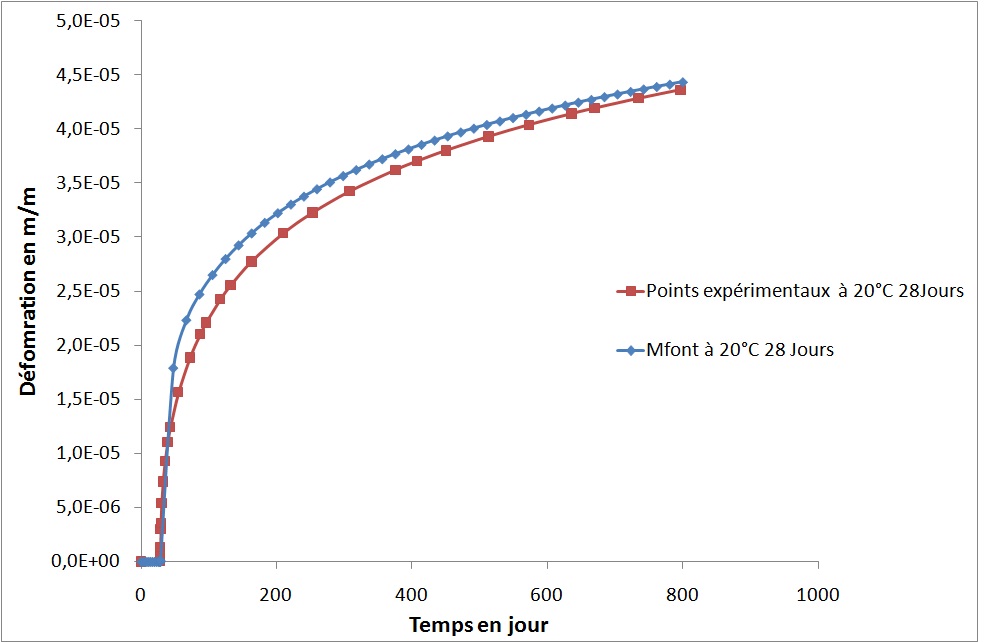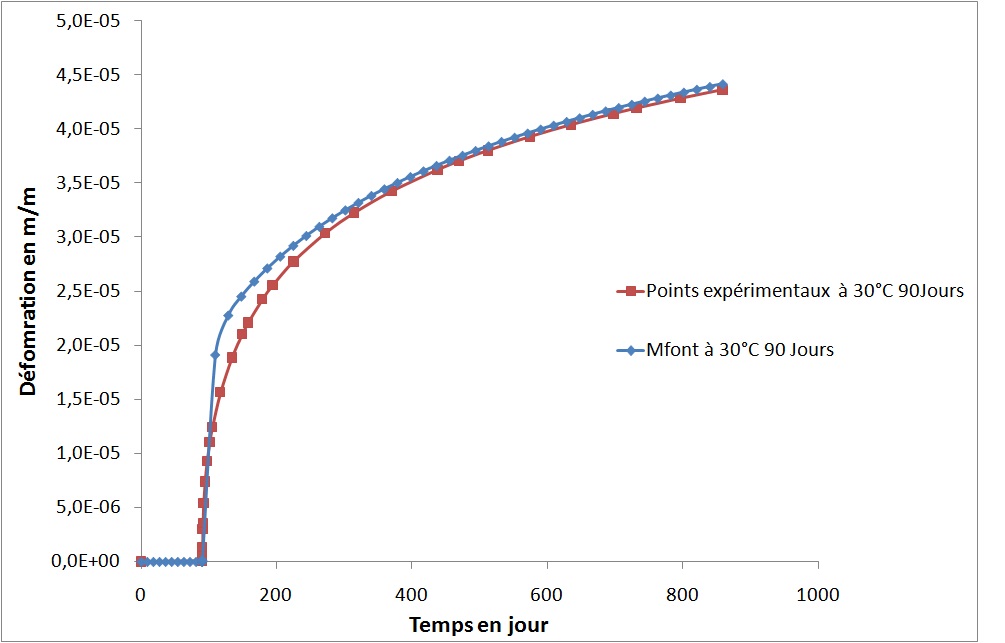1. C modeling#
1.1. Characteristics of modeling#
Tested behavior: Burgerageiing.mfront. Burger concrete creep law with aging (cf. [R7.01.35]).
Modeling: creep test on an element (material point). Comparison to Kommendant tests for two clean creep tests:
concrete filled at 28 days, with a temperature of 20°C,
concrete filled at 90 days, with a temperature of 30°C,
Material properties:
Concrete loaded after 28 days
YOUN |
31000 |
POISS |
0.2 |
K_RS |
1.956 E5 |
ETA_RS |
4,797 E10 |
ETA_IS |
1.57 E5 |
K_RD |
5 E4 |
ETA_RD |
1 E10 |
ETA_ID |
1 E5 |
Alpha |
1-2e-6 |
Ea_R |
0 |
Tref |
20 |
ETA_FD |
5,8e9 |
Cini |
1 |
Ea_R |
2100 |
Concrete loaded at 90 days: only the Ea_R coefficient is modified because the reference temperature is different from the test temperature.
Reference:
« Study of concrete properties for prestressed concrete reactor vessels » . Kommendant G.J., Polivka M., and Pirtz D., . UCSESM 76-3, s.l.: General Atomic Company, Department of Civil Engineering, Department of Civil Engineering, University of California, Berkeley, 1976.)
1.2. Tested sizes and results#
Concrete loaded at 28 days (creep deformation \({\epsilon }_{\mathit{zz}}^{f}\) is provided by the internal variable V30)
Identification |
Increment |
Reference Value |
Tolerance |
\({\epsilon }_{\mathit{zz}}\) |
20 |
|
|
\({\epsilon }_{\mathit{zz}}^{f}\) |
20 |
|
|
\({\epsilon }_{\mathit{zz}}^{f}\) |
27 |
-2.87E-05 |
|
\({\epsilon }_{\mathit{zz}}^{f}\) |
32 |
-3.29E-05 |
|
\({\epsilon }_{\mathit{zz}}^{f}\) |
45 |
-3.93E-05 |
|
\({\epsilon }_{\mathit{zz}}^{f}\) |
60 |
-4.36E-05 |
|
The calculated and experimental curves are as follows:

Concrete loaded at 90 days (creep deformation \({\epsilon }_{\mathit{zz}}^{f}\) is provided by the internal variable V30)
Identification |
Increment |
Reference Value |
Tolerance |
\({\epsilon }_{\mathit{zz}}\) |
20 |
|
|
\({\epsilon }_{\mathit{zz}}^{f}\) |
20 |
-1.57E-07 |
|
\({\epsilon }_{\mathit{zz}}^{f}\) |
25 |
-2.65E-05 |
|
\({\epsilon }_{\mathit{zz}}^{f}\) |
35 |
-3.42E-05 |
|
\({\epsilon }_{\mathit{zz}}^{f}\) |
45 |
-3.94E-05 |
|
\({\epsilon }_{\mathit{zz}}^{f}\) |
60 |
-4.36E-05 |
|
The calculated and experimental curves are as follows:
